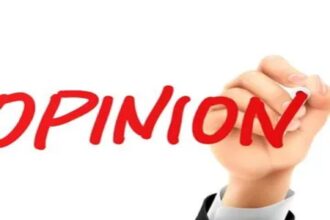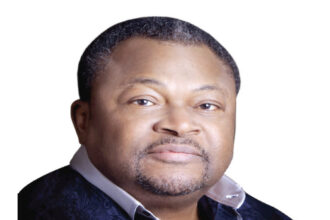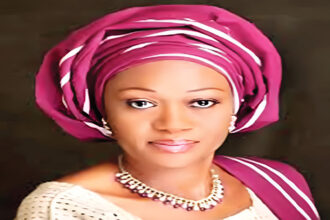By Adekunle Animashaun
On Saturday 25th February, 2023, Nigerians will go to the polls to cast ballot in the presidential and national assembly elections to elect new helmsmen to the federal legislative and executive offices. 93, 469,008 million registered voters will be exercising their franchise in the election out of which youth make up 37, 060, 399 million or 39.65 % of the national voter population. In 2019, 84, 004, 084 million voters were on the National Register of Voters.18 political parties will be competing in the elections which is a far cry from 73 political parties that contested the 2019 vote. Voting will take place in 176, 606 polling units across the six geo-politico zones of the Nigerian federation. The last few days have however witnessed some political parties who are fielding presidential candidates in the election collapse their structures into bigger parties. Both the ruling All Progressives Congress (APC) and the People’s Democratic Party (PDP) are chief beneficiaries of this politically motivated action of less established political parties.
The 2023 presidential contest is increasingly assuming the character of being the most unpredictable presidential challenge since the democratic restoration of 1999. For the first time since the introduction of presidential politics in Nigeria in 1979, the incumbent party is flying a same-faith presidential ticket in an election that is projected to be strongly fought along the lines of egregious sectarian identity.
While presidential contest in Nigeria has usually been a two-horse race since the transition elections of 1999 that ushered in the current dispensation, the 2023 presidential contest departs radically from the tradition throwing up three main contenders, albeit one is a clear underdog in an election that has attracted wide local and international attention.
The context of the 2023 election is chiefly defined by such elements as rising insecurity, economic crisis, intra-party instability which in the case of APC has led to allegation of internal sabotage, as well as unprecedented low faith in the capacity of political incumbency to impact electoral outcome. As the country struggles to combat the growing insecurity in the land, inflation has hit 21% in QI of the year 2023 while unemployment rate is around 33 %. Citizen access to basic necessities has remained generally low in the face of galloping inflation and chronic unemployment and underemployment.
The ubiquitous nature of poverty in Africa’s largest economy was aptly captured in the recent report of the National Bureau of Statistics (NBS), state agency responsible for collecting, compiling, analyzing, interpreting, publishing and disseminating statistical data relating to the socio-economic well-being of the Nigerian citizen. In the report released in November 2022, NBS revealed that 133 million Nigerians representing 63 % of the country’s population are multi-dimensionally poor.
The three gladiators that have been thrown up by the 2023 presidential vote are former Lagos state governor, Senator Bola Ahmed Tinubu of the ruling All Progressives Congress (APC), former Anambra state governor, Mr. Peter Gregory Obi of the Labour Party (LP) and former Vice President, Alhaji Atiku Abubakar of the People’s Democratic Party (PDP). Tinubu has never been on the presidential ballot while Obi was the vice presidential candidate to Atiku in 2019 presidential election. Atiku, unarguably the most experienced seeker of presidential office in the current republic, was on the ballot during 2007 and 2019 presidential votes.
The electoral prospects of these three fore runners have preoccupied analysts and keen watchers of electoral politics in Nigeria in the past months with analysts generating contentious permutations and reaching varying conclusions. Pre-election opinion polls, some of which are open to contestation, have largely favoured Peter Obi. The Labour Party candidate has also received endorsement from prominent Nigerians and international media including the Economist, a British weekly newspaper. The influential London-based newspaper puts Mr. Obi ahead of Senator Tinubu and Alhaji Abubakar. According to the newspaper, the former Anambra governor “…is the only candidate to offer Nigerians much hope of change. In a country that has been badly and repeatedly failed by its leaders, he is easily the best choice”. In an article titled “Nigeria desperately needs a new kind of leadership” published on 16th February, 2023, the newspaper described Senator Tinubu as “an old school politician” who is not likely to introduce radical policies that would be much needed in the post-Buhari years. It described Alhaji Atiku as a candidate with “grandiose ideas” with no concrete implementation plan.
There is a sense in which one can aver that policy issues will have little relevance in the coming election thereby reinforcing the issue-free nature of Nigerian politics that is well acknowledged in the literature. In the same vein, while traditional pattern of voting across geo-politico zones may still play out, traditional loyalty of voters can not be taken for granted. In the figures for registered voters in the six geo-politico zones released by INEC, the North West has 22, 255, 562 million voters, North Central 15, 363, 731million, South South 14, 440, 714 million, South East 10, 907, 606 million, North East 12, 542, 427 and South West 17, 958, 966 million voters. These figures on the surface confer electoral advantage on two regions namely the North West and the South West. Thus, parties and candidates that have the two regions as their strongholds would seem to have better prospects in the election. But like we argued above, new dynamics have crept into voter behaviour, particularly since 2015 that may challenge the validity of old permutations.
It is a truism that the northern population is substantially elite-controlled making ordinary northern citizens vulnerable to the whims and caprices of the political elite. This brings into bold relief a key feature of northern politics namely, ‘obeisance culture’ which my late teacher/supervisor, Professor Kunle Amuwo, an immensely cerebral scholar, elaborately discussed in his political science classes at the University of Ibadan. This elite control could be an advantage for the APC presidential candidate, Senator Tinubu, if the APC governors in the region succeed in effectively seizing the psyche of the northern voters given the suspicion that President Buhari’s cult-like followership in the region, a huge electoral capital that aided Buhari’s triumph in 2015 and 2019, is rapidly declining.
There is no denying the fact that the declining legitimacy of the Buhari government constitutes a potent threat to the electoral prospects of the APC and its presidential standard bearer. I have travelled to four South West states and one North Central state in the past few weeks and I must confess that I am particularly surprised by open disdain and brazen hatred people demonstrate against Senator Tinubu. Conversations in certain public places such as motor parks and newspaper stands negatively target the APC candidate; and this public hostility in a way feeds into general displeasure with the Buhari administration performance record which has worsened in the past year. This kind of open hostility against an electoral candidate can be costly in election season. It is an irony that the hostility is breeding from a geo-politico zone that houses citizens that are regarded as sophisticated both educationally and politically; are capable of taking electoral decision outside of the influence of political elite; and are resident in a region that is perceived as a stronghold of the ruling party. We now turn to the key deciders of the 2023 presidential challenge.
Given the irrelevance of issue positions of parties competing in the election, I argue that three key factors will decide the outcome of the 2023 presidential election. These are the national mood, personality of the presidential candidates and party platform. If the present mood of an average Nigerian were to be the sole decider of the presidential vote, the ruling APC will be in serious trouble as the prevailing national mood converges against the party. On the other hand, PDP and LP are the beneficiaries of this ‘mood swing’ even if it is difficult to know the greater beneficiary. While many Nigerians still remember some of the atrocities the PDP perpetrated in its 16 year rule, the LP has not been tested as a party controlling federal powers. The personality of the three top contenders would be crucial to the outcome of the election in two ways. First is the perception of the candidates that has been entrenched in public consciousness; and the second is the capacity of the personality of a candidate to mobilize votes. In terms of public perception, the candidates of APC and PDP have negative public image as the two are linked to alleged corruption and financial scandals. On the other hand, the LP candidate has been projected as an unblemished Spartan politician who represents a break from the past. The personality of the APC and PDP candidates has greater capacity to attract votes than LP’s Peter Obi for the simple reason that the two are old horses who have been operating at the national level for several years. Party platform is perhaps the most crucial of the three deciders. The PDP is the oldest party of the current republic and was in power for16 years after the inauguration of the republic in May 1999. The party currently rules in 15 states in Nigeria. The APC was formed following the merger of four political parties in February 2013. The party won the 2015 and 2019 presidential elections and currently rules in 21 states in Nigeria and controls parliamentary majority in the national legislature. On the other hand, LP does not control any state in the country and has a very insignificant parliamentary representation in both state and federal legislatures.
I have a hunch that the outcome of the election would be determined by the personality of the candidates and party platform. This clearly reduces the battle to two-horse race between APC’s Bola Tinubu and PDP’s Atiku Abubakar even if Peter Obi will give the two a fairly good fight. The two candidates are eminent Politically Exposed Persons (PEPs) and have large pockets to mobilize voters both licitly and illicitly. Both candidates appear to be on this level in this respect and it may be difficult to pick which of the two has a better personality that can attract greater votes. At the level of party platform, the two parties have wide structures and are well-resourced. However, the 16 years that the PDP has spent as an opposition party appear to have negatively impacted on the party particularly in the area of financing and maintaining its structures across the country. On the other hand, the APC has consolidated on its own structures in the last 8 years and this gives the party a slight advantage over the PDP.
It is on the strength of the relative advantage of political structures that I tip APC to win Saturday election with a low margin against the PDP. If these structures are creatively activated and well-funded, they may sway victory in favour of the party. On the other hand, if the structures fail to deliver victory to the APC, then the attribute of ‘indeterminacy’ associated with election will have come to play.
Adekunle Animashaun writes from Department of Political Science and Public Administration, Fountain University, Osogbo, Nigeria.








